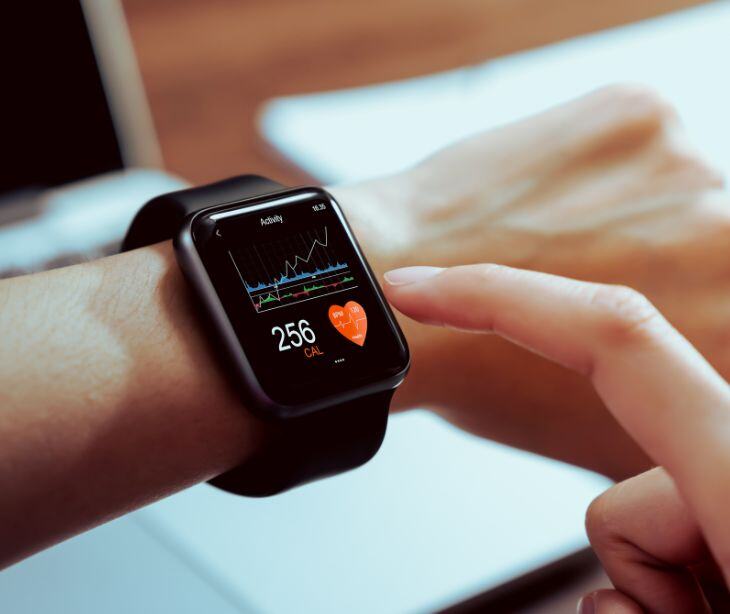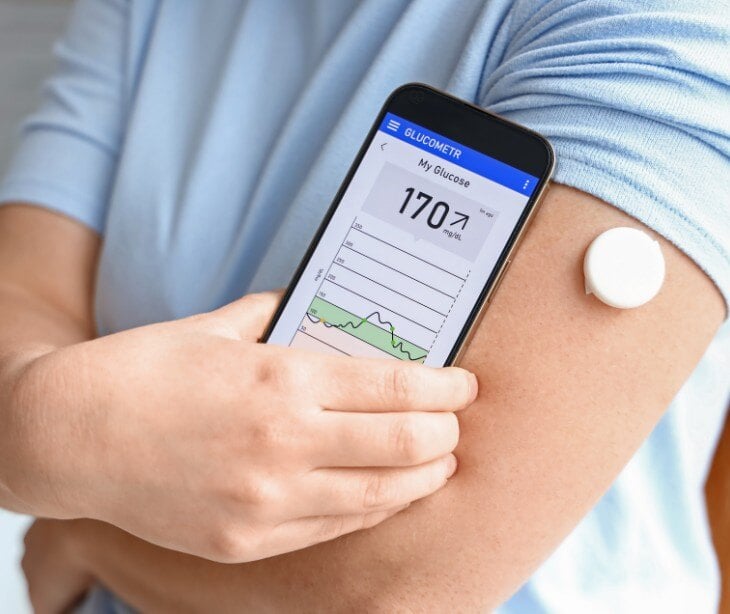
Providers can incorporate the data collected from wearables for HIPAA compliant email follow-ups, offering continuous monitoring and real-time data that improve patient care.
Wearable technology in healthcare
According to TechTarget, “Wearable technology is any kind of electronic device designed to be worn on the user's body. Such devices can take many different forms, including jewelry, accessories, medical devices, and clothing or elements of clothing.”
In healthcare, these devices can monitor health metrics continuously, providing real-time data for follow-up care.
For example, "the Terasaki Institute for Biomedical Innovation invented wearable electronic skin for monitoring health." The wearable e-skin patch "can be attached to the wearer's chest area along with a small wireless transmitter by using water spray and can be worn for up to a week."
The device will "pick up and record electro signals, [like] heartbeats and muscle movements, which can be sent to healthcare providers via the cloud so they can monitor the user's vitals remotely."
However, the Health Insurance Portability and Accountability Act (HIPAA) requires healthcare providers to encrypt and securely store the data transmitted from these devices.
Steps for HIPAA compliance in wearable technology
1. Data encryption: Providers must encrypt health data transmitted from wearables, safeguarding protected health information (PHI) from unauthorized access.
2. Secure storage: HIPAA mandates providers also securely store health data, preventing potential data breaches.
3. Patient consent: Providers must use a HIPAA compliant consent form to obtain informed patient consent before collecting, using, or sharing their health data.
4. Access controls: Patient health data should be restricted to authorized staff only. More specifically, provider organizations can implement role-based access controls, limiting PHI access based on staff responsibilities.
5. Develop policies: Provider organizations must develop guidelines on using wearable technology for their clinical practice, including data handling, consent, and security measures.
5. Regular audits: Providers must conduct regular HIPAA compliance audits to identify and address potential vulnerabilities in data management practices.
Go deeper: HIPAA compliance in wearable devices
Using wearable data for email follow-ups
HIPAA compliant email follow-ups can enhance patient care through personalized and timely interventions.
Specifically, providers can use the data collected from wearables, like heart rate or activity levels, to monitor patient progress remotely and make informed decisions about their treatment plans. Providers can then use HIPAA compliant emails to talk to patients about their progress, adjust their treatment plans, and offer ongoing support.
Additionally, HIPAA compliant emails facilitate bi-directional communication so providers and patients can collaborate effectively on achieving health goals.
Moreover, continuous monitoring also reduces the risk of miscommunication or misunderstandings that occur in traditional methods like phone calls or in-person visits.
Go deeper: Using emails and texts for follow-ups during post-discharge care
FAQs
Should wearable technology be HIPAA compliant?
Yes, HIPAA mandates that covered entities, including healthcare providers, protect patient data collected by wearable technology from unauthorized access and misuse.
Do providers need consent to send patients follow-up emails?
Yes, providers must obtain explicit patient consent to send follow-up emails, according to HIPAA regulations.
How do providers know if their email system is HIPAA compliant?
Providers should check if their email service offers encryption, access controls, audit trails, and secure data storage. Additionally, providers should review their email system's business associate agreement to confirm their HIPAA compliance.
Subscribe to Paubox Weekly
Every Friday we'll bring you the most important news from Paubox. Our aim is to make you smarter, faster.






